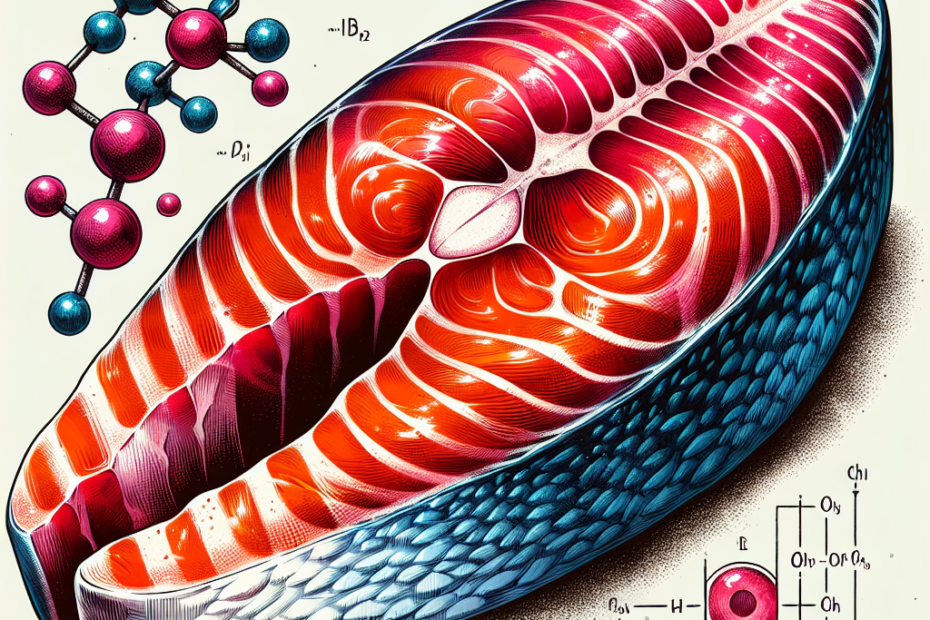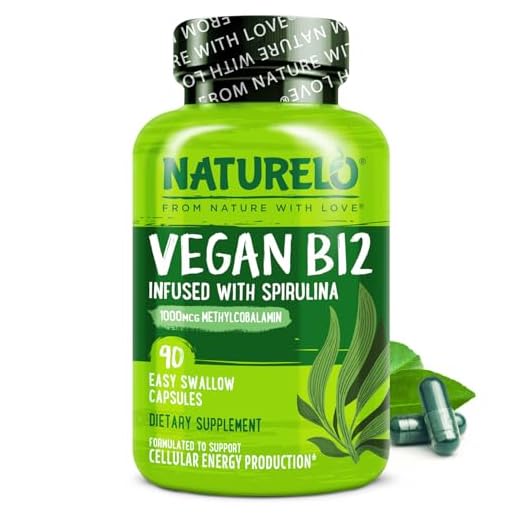







Are you curious about the importance of vitamin B12 in your diet? Look no further! This article explores the reasons why your body needs vitamin B12 and the key role it plays in maintaining your overall health. From supporting energy production to promoting healthy brain function, vitamin B12 offers a range of benefits that you won’t want to miss out on. So, let’s delve into the world of vitamin B12 and discover why it’s so essential for your vitality and well-being. Vitamin B12 is an essential nutrient that plays a crucial role in maintaining various functions in our body. In this comprehensive article, we will explore the different functions of vitamin B12, food sources that provide this nutrient, the risks associated with deficiency, the health benefits it offers, and its significance for vegetarians and vegans. We will also discuss the recommended daily intake, absorption and metabolism processes, the impact of aging on B12 levels, and medical conditions and medications that can affect B12 levels. Additionally, we will cover diagnosing and treating B12 deficiency, ensuring you have all the necessary information to prioritize your health.
Functions of Vitamin B12
Energy production
One of the key functions of vitamin B12 is its role in energy production. It plays a vital role in the metabolism of carbohydrates and fats, converting them into usable energy for the body. Without sufficient vitamin B12, the energy production process can be disrupted, leading to fatigue and sluggishness.
DNA synthesis
Vitamin B12 is essential for the synthesis of DNA, the genetic material found in all cells. It aids in the replication and repair of DNA, which is crucial for the growth and development of cells. Proper DNA synthesis is particularly important during periods of rapid growth, such as during pregnancy and childhood.
Nervous system function
Vitamin B12 is crucial for the proper functioning of the nervous system. It helps in the production of myelin, a protective coating around nerves that allows for efficient communication between the brain and other parts of the body. Adequate B12 levels are essential for maintaining healthy nerve cells and preventing neurological disorders.
Food Sources of Vitamin B12
Meat and poultry
Animal products, such as meat and poultry, are the richest sources of vitamin B12. Beef, chicken, and turkey contain high levels of this nutrient, making them excellent options for individuals looking to meet their B12 requirements.
Fish and seafood
Fish and seafood are also excellent sources of vitamin B12. Fatty fish like salmon, trout, and sardines contain significant amounts of B12, making them healthy choices for individuals seeking to add this nutrient to their diet.
Dairy products
Dairy products, including milk, cheese, and yogurt, are good sources of vitamin B12. They are widely consumed and readily available, making them convenient options for individuals looking to increase their B12 intake.
Eggs
Eggs are a versatile and nutrient-rich food that also provides vitamin B12. They can be incorporated into various dishes, making them a popular choice for individuals seeking to incorporate B12 into their diet.
Fortified foods and supplements
For individuals following a vegetarian or vegan diet or those who may have difficulty obtaining sufficient B12 from natural food sources, fortified foods and supplements are available. These include plant-based milk alternatives, cereals, and nutritional yeast, which are fortified with vitamin B12. Supplements in the form of tablets, capsules, or injections can also be taken to ensure adequate B12 intake.
Vitamin B12 Deficiency
Causes of deficiency
Several factors can contribute to vitamin B12 deficiency. Vegetarians and vegans who avoid animal products are at a higher risk as they may not consume sufficient B12 through their diet. Additionally, individuals with gastrointestinal conditions, such as Crohn’s disease or celiac disease, may have difficulty absorbing vitamin B12 properly. Pernicious anemia, an autoimmune condition, can also lead to B12 deficiency as it affects the body’s ability to absorb this nutrient.
Signs and symptoms
The signs and symptoms of vitamin B12 deficiency can vary, but commonly include fatigue, weakness, numbness or tingling in the hands and feet, difficulty maintaining balance, soreness of the mouth or tongue, and pale or yellowish skin. If left untreated, B12 deficiency can lead to severe neurological symptoms.
Risk factors
Certain individuals are at a higher risk of developing B12 deficiency. Older adults often have reduced stomach acid production, which can hinder B12 absorption. Individuals with gastrointestinal conditions, such as Crohn’s disease or celiac disease, and those who have undergone weight loss surgery may also struggle with proper B12 absorption. Furthermore, individuals who follow a vegan or vegetarian diet without adequate supplementation are at a higher risk of deficiency.
Groups at higher risk
Aside from the aforementioned risk factors, certain groups are especially vulnerable to B12 deficiency. Pregnant women require higher amounts of B12 for fetal development, and breastfeeding women need to ensure an adequate supply for both themselves and their babies. Elderly individuals, due to age-related changes in absorption and metabolism, may also face challenges in maintaining sufficient B12 levels.
Health Benefits of Vitamin B12
Boosts energy levels
Vitamin B12 plays a vital role in energy production, making it essential for maintaining optimal energy levels. Sufficient B12 levels can help combat fatigue and increase overall vitality and productivity.
Supports brain health
The brain relies on vitamin B12 for proper functioning, including maintaining cognitive function and memory. Adequate B12 levels have been associated with better brain health and a reduced risk of cognitive decline.
Maintains healthy nerve cells
Vitamin B12 is crucial for maintaining healthy nerve cells and supporting the proper functioning of the nervous system. It aids in the production of myelin, the protective covering of nerves, which ensures efficient communication between the brain and other parts of the body.
Prevents anemia
B12 deficiency can lead to a type of anemia called megaloblastic anemia, characterized by the production of abnormally large red blood cells. Consuming adequate amounts of B12 helps prevent this condition by ensuring the production of healthy red blood cells.
Improves mood and mental health
Studies have shown a link between vitamin B12 deficiency and mood disorders such as depression and anxiety. Adequate B12 intake can help improve overall mood and mental well-being.
Vitamin B12 and Vegetarians/Vegans
Importance for vegetarians and vegans
Vegetarians and vegans who exclude animal products from their diet face a higher risk of B12 deficiency. Since plant-based foods are generally poor sources of B12, it is important for these individuals to ensure they obtain adequate amounts through fortified foods or supplements to maintain optimal health.
Alternative sources for vegetarians and vegans
For vegetarians and vegans, fortified foods are a crucial source of vitamin B12. Plant-based milk alternatives, cereals, and nutritional yeast often contain added B12. Supplements specifically formulated for vegetarians and vegans can also provide the necessary B12 requirements.
Recommended Daily Intake
Age and gender-specific recommendations
the recommended daily intake of vitamin B12 varies based on age and gender. For adults, the recommended daily intake is 2.4 micrograms (mcg) for both males and females. However, pregnant and lactating women require higher amounts – 2.6 mcg and 2.8 mcg, respectively.
Pregnancy and lactation
During pregnancy and lactation, the demand for vitamin B12 increases to support fetal development and milk production. Pregnant and lactating women should ensure they meet the higher daily intake recommendations to support their own health and the health of their baby.
Supplementation guidelines
In cases where individuals are unable to meet their B12 needs through diet alone, supplementation may be necessary. It is important to consult with a healthcare professional to determine the appropriate dosage and to discuss any potential interactions with other medications or existing health conditions.
Vitamin B12 Absorption and Metabolism
Process of absorption
Vitamin B12 is absorbed in the small intestine. It requires a protein called intrinsic factor, which is produced by the stomach, to be properly absorbed. Once absorbed, B12 is transported to the liver for storage and subsequent utilization by the body.
Factors affecting absorption
Several factors can affect the absorption of vitamin B12. These include age, the presence of gastrointestinal conditions, and the use of certain medications. Additionally, individuals with pernicious anemia, a condition characterized by the inability to produce intrinsic factor, may experience impaired B12 absorption.
Metabolism and storage
Once absorbed, vitamin B12 is stored in the liver and can be released as needed. The body has stores of B12 that can last for several years, which allows for maintenance of sufficient levels even if dietary intake is temporarily inadequate. However, as these stores decline over time, it becomes increasingly important to ensure regular intake of vitamin B12 through diet or supplementation.
Vitamin B12 and Aging
Importance for older adults
As individuals age, the absorption and metabolism of vitamin B12 can become less efficient. This is often due to age-related changes in the stomach and gastrointestinal system. It is crucial for older adults to monitor their B12 levels and ensure adequate intake to prevent deficiency and related health issues.
Age-related changes in absorption and metabolism
With age, the stomach may produce less hydrochloric acid, which is necessary for proper B12 absorption. Additionally, changes in the lining of the stomach can impact the production of intrinsic factor, further affecting B12 absorption. Older adults may also experience decreased production of enzymes required for B12 metabolism.
Medical Conditions and Medications Affecting B12 Levels
Gastrointestinal conditions
Gastrointestinal conditions that affect the absorption or function of the stomach and small intestine can interfere with B12 absorption. Conditions such as Crohn’s disease, celiac disease, and gastritis can hinder the body’s ability to adequately absorb vitamin B12 from food sources.
Pernicious anemia
Pernicious anemia is an autoimmune condition in which the body is unable to produce intrinsic factor, resulting in impaired B12 absorption. This condition can lead to a deficiency of vitamin B12 and subsequent health issues if left untreated.
Medications interfering with absorption
Certain medications can interfere with the absorption or metabolism of vitamin B12. Examples include proton pump inhibitors (PPIs), which reduce stomach acid production, and metformin, commonly used to treat diabetes. It is important for individuals taking these medications to monitor their B12 levels and discuss any concerns with their healthcare provider.
Diagnosing and Treating Vitamin B12 Deficiency
Blood tests and diagnostic criteria
To diagnose vitamin B12 deficiency, healthcare providers often order blood tests to measure B12 levels in the bloodstream. Additionally, other blood tests, such as complete blood count (CBC) and homocysteine and methylmalonic acid levels, may be conducted to assess the severity and underlying causes of deficiency.
Treatment options
The treatment for vitamin B12 deficiency typically involves replenishing B12 levels through supplementation. This can be done through oral tablets, sublingual tablets, nasal sprays, injections, or intravenous infusions, depending on the severity of the deficiency and individual needs. The appropriate treatment option will be determined by a healthcare professional.
Supplementation strategies
Supplementation strategies for individuals with B12 deficiency can vary based on the cause and severity of the deficiency. Generally, maintaining regular intake of B12 through diet or supplements is recommended. Individuals with conditions that affect B12 absorption may require higher doses or alternative administration methods of supplementation. Regular monitoring of B12 levels is essential to assess the effectiveness of supplementation strategies.
In conclusion, vitamin B12 is a vital nutrient with numerous key functions in our body. From energy production and DNA synthesis to supporting the nervous system and preventing anemia, this vitamin plays a crucial role in overall health and well-being. It is important to ensure an adequate intake of vitamin B12 through a balanced diet that includes animal products or through the use of fortified foods and supplements, especially for vegetarians, vegans, and individuals at higher risk of deficiency. Regular monitoring and appropriate supplementation, when necessary, can help maintain optimal B12 levels and prevent related health issues. Remember to consult with a healthcare professional for personalized advice and guidance regarding vitamin B12 intake and supplementation.







